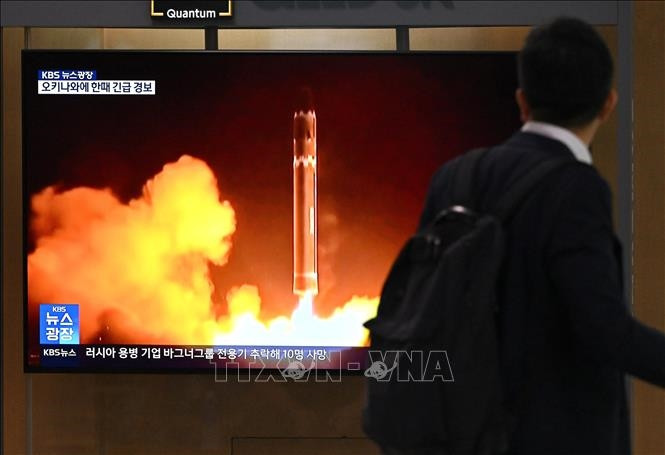On August 24, President Yoon Suk Yeol instructed the National Security Council (NSC) to share with the United States and Japan its analysis of North Korea's latest failed satellite launch.

This image, shown on television in Seoul by South Korean media, shows North Korea's test launch of a missile, August 24, 2023
Yonhap news agency quoted a press release from the South Korean presidential office after an emergency NSC meeting, stating that Mr. Yoon Suk Yeol instructed that the agreement reached at the recent South Korea-US-Japan Summit at Camp David, such as sharing real-time missile warning data, strengthening missile defense cooperation and holding regular trilateral exercises, must be thoroughly implemented. He also instructed to share the results of the launch analysis with the US and Japan to prepare for North Korea's next moves.
Meanwhile, the US has urged North Korea to de-escalate tensions.
The US State Department spokesperson stressed that the projectile incorporated technologies similar to those used in ballistic missiles, including intercontinental ballistic missiles. The official made clear that the US wants to talk to North Korea without preconditions, calling on Pyongyang to engage in serious diplomatic efforts.
Earlier, the South Korean Joint Chiefs of Staff detected a projectile launched from North Korea’s Tongchang-ri area at 3:50 a.m. on August 24 (local time). The object flew over international waters west of Ieodo, 149 km southwest of Jeju Island.
North Korea later confirmed that it had launched the Malligyong-1 reconnaissance satellite, which was mounted on a new rocket called the Chollima-1. However, the launch failed due to a fault in the emergency detonation system of the third stage of the flight.
North Korea's satellite launch took place in the context of the Ulchi Freedom Shield military exercise conducted by the South Korean and US militaries that began on August 22. North Korea has repeatedly said that this exercise is a military provocation.
According to VNA